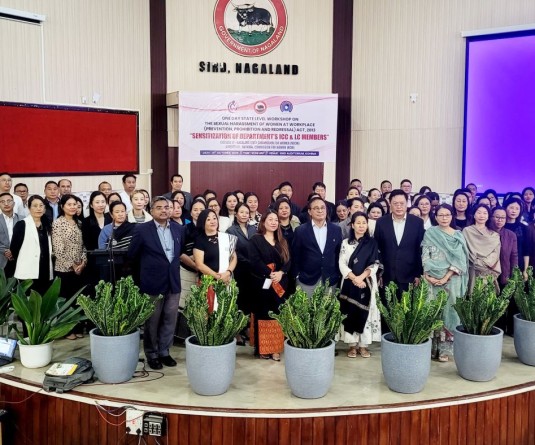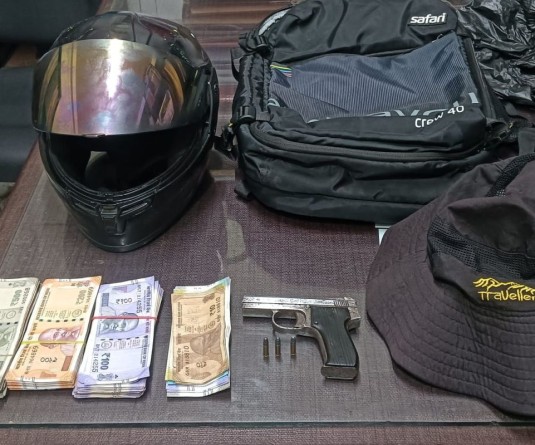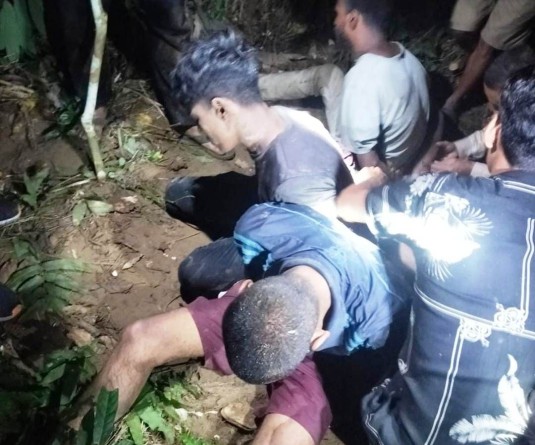
Our Correspondent
Kohima | June 26
The need to fight against drug abuse and illicit trafficking has been stressed during the observance of International Day Against Drug Abuse and Illicit Trafficking 2019 here under the theme “Health for justice and Justice for Health.”
In the state capital, the main programme was organized by Kripa Foundation Nagaland in collaboration with Ministry of Social Justice and Empowerment, department of social welfare Nagaland, Narcotic Cell police department, NSACS, NCCI, IDUF and Nagaland User’s Network.
Addressing the gathering, Nagaland’s governor PB Acharya expressed that Nagaland is in a danger zone of drug user and the two aspects of prevention is better than cure. And how to come about for the affected people is in need for the stake holders like family, friends, education institutions, religious members to ponder on their responsibility.
He stated that, unless one mind is occupied for creativity activities, such problem will prevail in the society, encouraging the youth to occupy their minds and also appealed the education institutions in creating a situation to feed the young people with accurate, productive and positive minded.
He further pointed that, what one becomes is not because of intersect values of qualities of “yourselves only but the total product of what makes you what you are,” comes from circle of friends, education, organization, and thus urged to be careful in choosing a friend.
Effect of drug abuse & related issues a big concern
School education & SCERT principal secretary Menukhol John said that drug abuse and other related issues are very personal matters and must be approached in a very humane way.
He remarked that such event is “very important” and is a reminder for all to relight the candle and to carry it forward in terms of what to do tomorrow.
He also said that topics on issues regarding drug abuse and other related topics have been incorporated in school syllabus in the state.
John suggested on compiling a story book based on the prevailing Naga context and come out with a made in Nagaland books on ‘how I started using drugs’ and ‘how did I come out of it.’
These books will be useful in understanding the problems and stigmas faced by the drug users and also spread awareness on the effects of drug abuse and related issues, he added.
Awareness on negative consequences crucial
Social welfare director T Merangtsungba Aier said, “All efforts should be made to inculcate the negative consequences of drugs and substance abuse on humanity.”
He felt that schools and colleges should have syllabus against drug abuse.
He also stressed on the need to have compulsory vocational trainings in school syllabus, engage young people in illustrious tasks, develop sufficient avenue for the educated youths, encourage and provide adequate games & sports facilities, strict vigil against the movements and availability of the substance etc.
‘Women are denied justices for treatment’
Kripa Foundation director Abou Mere said that drug user live in denial and never seeks treatment. He said that way back in 1990 the Naga Mother’s Association and Kripa foundation came together and broke down the denial and reduced stigma and discrimination in Nagaland.
He said that the civil societies and NGOs have contributed much and now the time has come for the state government to stand up and do justice.
Mere said health is a state subject and therefore the state government must provide budgetary allocation for drug policy in order to save life.
Nagaland Users Network (NUN) vice president Nukshinaro pointed out that women are denied justices for treatment.
The irony is that the kind of treatment women get is different from the treatment the male gets in terms of access to treatment or support, she said.
She appealed to the decision makers to have more option open available for women intervention, like addressing the issues in women drug users, counselling on violence, sexual reproductive health issues, besides the issues of HIV, Hepatitis C because if the issues are not addressed then to reach a target of 90:90 set by the UN by 2030 will not be achieved.
She also appealed the people not to judge them by their past but to give them a chance to be a better person.
N-NagaDao secretary Ketho Angami called for having a consultative meeting to share ideas, work our strategies and to bring about practical solution.
Also speaking on the occasion, Ato appealed the state government and the concerned department to uphold the rights of the marginalized drug user community by taking appropriate steps and ensure that specific health programme in line with the national programme are implemented so that the pressing health issues related to drug users are addressed and at the same time strengthen and scale up the harm reduction and demand reduction treatment support through collaborative efforts of the NGOs and government departments.
(With DIPR inputs)






